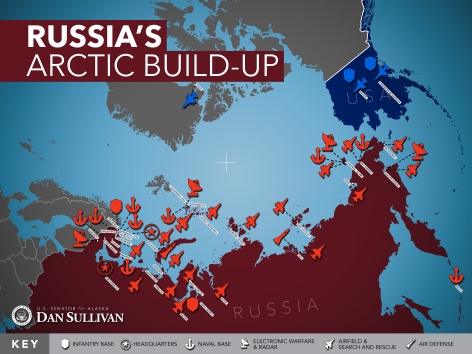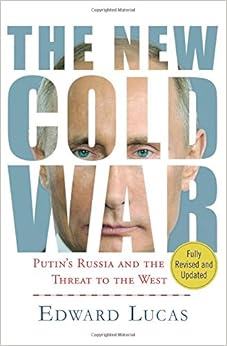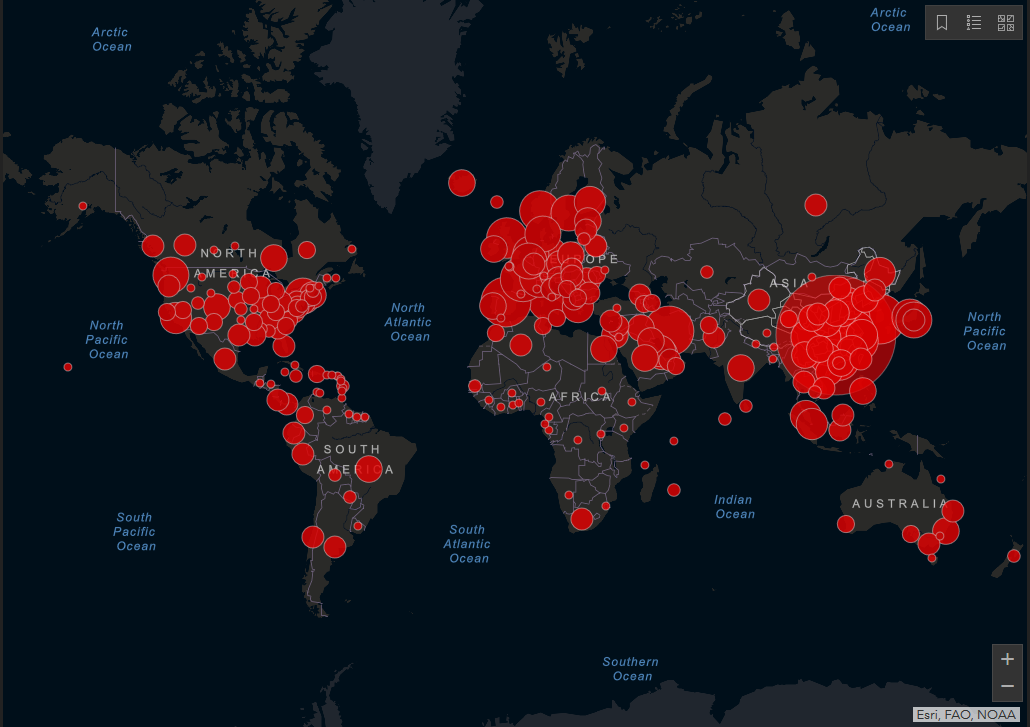In his 1984 book New Lies for Old, KGB defector Anatoliy Golitsyn, who lived incognito for decades and who would be 86 years old if he is still alive, predicted that the Soviet communists would:
- feign their demise, which took place in 1991 with the stage-managed collapse of the Soviet Union and the fake, temporary banning of the Communist Party of the Soviet Union;
- eliminate any rational for NATO’s existence, which took place in 1991 with the so-called end of the Cold War and the integration of economically backward “ex”-communist states into the Western military alliance;
- install a communist puppet in the White House, which took place in 1992, with the election of alleged KGB asset Bill Clinton, and again in 2008, with the election of avowed socialist Barack Hussein Obama, who has received the endorsement of the Communist Party USA; and
- rebuild the red world order, which began in 1991 with the creation of the Commonwealth of “Independent” States (CIS) and, afterwards, numerous other international organizations across the post-Soviet space
Even though the “ex”-communists and “ex”-KGB types in the Kremlin are very obviously assembling a new, improved, and even larger version of the Soviet Union before the very eyes of the world, European and US government leaders are oblivious to or complicit with said objective.
On September 13, 2012, reports the Armenian media, citing Valentina Matviyenko, speaker of the Russian parliament’s Federation Council, parliamentarians from Russia, Kazakhstan, and Belarus will meet to discuss the creation of a Eurasian Parliament. “A working group to discuss the future of the parliamentary dimension of the Eurasian Union has been created. It includes parliamentarians from Russia, Kazakhstan and Belarus,” Matviyenko said. “Personally, I believe the new Parliament should be in Astana as Kazakhstan as today there is no doubt it is the engine of Eurasian integration,” Matviyenko added. In October 2011, Vladimir Putin, then Russian Federation prime minister, floated the idea of a Eurasian Union as a counterweight to the European Union, although Kazakh President Nursultan Nazarbayev first broached the concept in 1994.
Although the Eurasian Union is billed as economic union, the formation of a parliament suggests that it will also be a political federation, much like the old Soviet Union or the EU, which has its European Parliament. Historically, the Supreme Soviet of the USSR was the rubberstamp legislative body that governed that multi-national state, although real power rested with the Politburo of the CPSU. In any case, the Kremlin’s stated ultimate objective is political union between Russia, the former Soviet republics, and beyond.
Last November, the presidents of Russia, Belarus, and Kazakhstan–Dmitry Medvedev, Alexander Lukashenko, and Nazarbayev–met in Moscow to sign three documents of integration: Declaration on Eurasian Economic Integration, Treaty on the Eurasian Economic Commission, and Regulations of the Eurasian Economic Commission. To be launched in 2015, the Eurasian Union will manifestly transform the Customs Union of Belarus, Kazakhstan and Russia, founded nearly three years ago, into a full-fledged economic union and nascent political union under the direction of the Eurasian Commission, modelled on the European Commission.
That Putin, a career Chekist and president once again since May 2012, and Medvedev, a Soviet Komsomol graduate and prime minister since the same month, would be committed to restoring the Soviet Union, albeit under a new name, should surprise no student of communism. Shortly after Putin proposed the formation of the Eurasian Union on the back of the Common Economic Space, Medvedev articulated Moscow’s official line
You remember the kind of words that accompanied the collapse of the Soviet Union. It was a very hard, sad time. We are working now to unite on a new basis, and I am certain that this union will have a very good future.
We would like for each state that wants to join the Customs Union, the Common Economic Space, and in future the Eurasian Union, to make that choice consciously, so that nobody then says they were roped in.
I could not have dreamt up in a worst nightmare what started happening after the collapse of the Soviet Union.
The Soviet Union succeeded in creating a Soviet people from many different nationalities. This model had worked and this was an absolutely legitimate goal. It did not have any ideological colours. It was a means of survival for the giant nation living on the vast territory of our country.
We should not be shy when bringing back the ideas of ethnic unity. Yes, we are all different but we have common values and a desire to live in a single big state.
Domestic and foreign critics of the Kremlin have rightly fretted that Russian-led integration in the post-Soviet space is simply a brazen attempt to restore the Soviet empire, a personal ambition of Putin, who in 2005 called the collapse of the USSR “the greatest geopolitical catastrophe of the 20th century.”
Last year, political analysts closely allied with the Kremlin also spilled the beans with respect to Russia’s plans for manufacturing Soviet Union Version 2.0. At a roundtable in Moscow in November, organized by the ruling (potemkin) United Russia party, experts insisted that all countries “loyal to Russia’s interests” should be absorbed into the proposed Eurasian Union. These would include ex-Soviet Bloc states like the Czech Republic, Hungary, and Bulgaria, openly communist countries like Vietnam, “ex”-communist countries like Mongolia, historically neutral countries like Finland and, surprisingly (or maybe not), Russia’s top allies in the Western Hemisphere: Cuba and Venezuela.
At this roundtable, Boris Gryzlov, another Soviet Komsomol graduate and president of the State Duma, the lower chamber of Russia’s parliament, said that “instruments and historic arguments” spoke in favour of establishing a Eurasian Union, which would embrace 250 million people. According to Gryzlov, a common history as constituent republics of the Soviet Union and a common language, Russian, would serve as the instrument of “international cooperation and economic cooperation.”
Dmitry Rogozin, Russia’s ambassador to NATO until December 2011, was quoted as saying that the project was designed “to unite not so much the lands, but rather peoples and the citizens in the name of a common state body.” Rogozin pleaded in favour of Russia earnestly considering the request of an estimated 20,000 Serbs in Kosovo who recently applied for Russian citizenship. Rogozin also pleaded for Russian to become an official language of the European Union, and said he would push this cause forward by gathering a million signatures using the recently launched European Citizens’ Initiative.
During the roundtable, Meksat Kunakunov, counsellor to the president of the parliament of Kyrgyzstan, Akhmatbek Keldibekov, quoted Putin as saying: “Whoever doesn’t regret the USSR has no heart. Whoever dreams of bringing back the USSR has no brains.” Kunakunov added on his own behalf: “Whoever doubts that we will create a new union is just a fool.”
Incidentally, we should point out that there are a number of political, economic, and military organizations currently operating in the post-Soviet space, many associated with the CIS. These often appear to replicate one another’s functions, but in the future, when the neo-Soviet strategists decide that the moment is propitious, they may be rolled into new agencies of one enormous super-state, such as the Eurasian Union.
Economic bodies include the Eurasian Economic Community and Common Economic Space, the main building block of which is the Customs Union of Belarus, Kazakhstan and Russia. The Collective Security Treaty Organization developed from the military alliance binding many of the CIS states. In 2007, the CSTO signed a protocol of cooperation with the Shanghai Cooperation Organization, which includes Red China, a key participant in several Sino-Russian “Peace Mission” military exercises since 2005.
Separate political bodies in the post-Soviet space include the Union State of Belarus and Russia, which has facilitated the economic and military integration of the two former Soviet republics. In 2007, Pavel Borodin, State Secretary of the Union State, boldly asserted that by 2014 the European Union would seek to join the Russian-Belarusian Union State. Incidentally, in 2001 Borodin was arrested in the USA for money laundering and extradited to Switzerland, where he had allegedly received bribes from construction companies bidding on projects in Moscow, but returned to his homeland after the Kremlin paid his bail to a Swiss court. Borodin was one of President Boris Yeltsin’s closest confidants.
For students of the Soviet deception strategy, a merger of the European Union and Russian-BelarusianUnionState would not be a surprising development since, in any case, the former is apparently a project of the Leninist masterminds in Moscow. In 2006, former Soviet dissident Vladimir Bukovsky disclosed that, after the “collapse” of communism, he had the privilege of examining documents of the Soviet Politburo that outlined a conspiracy between Moscow and Europe’s leftist parties to transform the European Common Market into a federal super-state. This, of course, came to pass with the signing of the Maastricht Treaty in February 1992, several months after the Soviet Union vanished into the dustbin of history, only to await resurrection more than two decades later. (See above.)
In Left-Wing Communism: An Infantile Disorder, Vladimir Lenin, the Soviet Union’s founding dictator, wrote of the need for a “really centralised and really leading centre capable of directing the international tactics of the revolutionary proletariat in its struggle for a world Soviet republic”:
It is now essential that Communists of every country should quite consciously take into account both the fundamental objectives of the struggle against opportunism and “Left” doctrinairism, and the concrete features which this struggle assumes and must inevitably assume in each country, in conformity with the specific character of its economics, politics, culture, and national composition (Ireland, etc.), its colonies, religious divisions, and so on and so forth. Dissatisfaction with the Second International is felt everywhere and is spreading and growing, both because of its opportunism and because of its inability or incapacity to create a really centralised and really leading centre capable of directing the international tactics of the revolutionary proletariat in its struggle for a world Soviet republic.
Under the guidance of Lenin’s disciples Putin and Medvedev, the communists are close to realizing this goal. Meanwhile, the West slumbers, pre-occupied by economic woes and enervated by total moral failure.
In further support of the contention that politicians in the “former” Soviet Union are committed to restoring the USSR in some form, we present the following quotes:
The [Revived] Worldwide Communist Federation
Integration of the [revived] communist bloc would follow the lines envisaged by [Vladimir] Lenin when the Third Communist International was founded. That is to say, the Soviet Union and China would not absorb one another or other communist states. All the countries of the European and Asiatic communist zones, together with new communist states in Europe [European Union (1993)] and the Third World [African Union (2001), Bolivarian Alliance for the Americas (2004), Union of South America Nations (2008), Community of Latin American and Caribbean States (2010), etc.], would join a supranational economic and political communist federation [Commonwealth of Independent States (1991), Union State of Russia and Belarus (1996), Eurasian Economic Community (1996), Shanghai Cooperation Organization (2001), Eurasian Union (planned for 2015), etc.]. Soviet-Albanian, Soviet-Yugoslav, and Soviet-Romanian disputes and differences would be resolved in the wake, or possibly in advance of, Sino-Soviet reconciliation [i.e., Sino-Russian Treaty of Good-Neighborliness and Friendly Cooperation (2001)]. The political, economic, military, diplomatic, and ideological cooperation between all the communist states, at present partially concealed, would become clearly visible. There might even be public acknowledgment that the splits and disputes were long-term disinformation operations that had successfully deceived the “imperialist” powers. The effect on Western morale can be imagined.
In the new worldwide communist federation the present different brands of communism would disappear, to be replaced by a uniform, rigorous brand of Leninism. The process would be painful. Concessions made in the name of economic and political reform would be withdrawn. Religious and intellectual dissent would be suppressed. Nationalism and all other forms of genuine opposition would be crushed. Those who had taken advantage of detente to establish friendly Western contacts would be rebuked or persecuted like those Soviet officers who worked with the allies during the Second World War. In new communist states—for example, in France, Italy, and the Third World—the “alienated classes” would be reeducated. Show trials of “imperialist agents” would be staged. Action would be taken against nationalist and social democratic leaders, party activists, former civil servants, officers, and priests. The last vestiges of private enterprise and ownership would be obliterated. Nationalization of industry, finance, and agriculture would be completed. In fact, all the totalitarian features familiar from the early stages of the Soviet revolution and the postwar Stalinist years in Eastern Europe might be expected to reappear, especially in those countries newly won for communism. Unchallenged and unchallengeable, a true communist monolith would dominate the world.
— Anatoliy Golitsyn, New Lies for Old: The Communist Strategy of Deception and Disinformation (New York: Dodd, Mead & Co., 1984), pages 346-347
The plans for the resurrection of the USSR are well known to Putin and the present regime and are outlined in the documents of the UCP-CPSU [Union of Communist Parties, which includes the Communist Party of the Russian Federation] and Communist Party of the Union [State of Russia and Belarus].
— Oleg Shenin (1937-2009), Politburo, Communist Party of the Soviet Union, 1990-1991; mastermind behind anti-Gorbachevist putsch; quoted in Northstar Compass, April 2003
The collapse of the Soviet Union was the greatest geopolitical catastrophe of the 20th century.
— Vladimir Putin, Russian Federation President, “ex”-CPSU; widely quoted statement from April 25, 2005
We believe that the restoration of a broken union [between ex-Soviet republics] is our key goal, and we will continue our efforts to accomplish this task. Without a union between Russia, Ukraine, Belarus and other brotherly republics that used to be members of the Soviet Union, we do not have a future.
— Gennady Zyuganov, Chairman, Communist Party of the Russian Federation, “ex”-CPSU; statement made during plenary meeting of the Union of Communist Parties-Communist Party of the Soviet Union; quoted in RIA Novosti, January 20, 2007
We are striving for [joining] the European Union, but I tell you, the EU will be striving for joining the Union State of Russia and Belarus in five to seven years. What do they have apart from beer and sausages? Nothing. But we have everything: vast territory, national projects, working places and the demand.
— Pavel Borodin, State Secretary of the Union State of Russia and Belarus, “ex”-CPSU; quoted in Kommersant, December 12, 2007
[The Customs Union] is an unprecedented step toward the restoration of the Soviet Union. I give you journalists a directive to write that [the] Soviet space will be restored in 2017. This is a symbolic date because the Bolsheviks established their rule in 1917.
— Borodin; quoted in Interfax-Ukraine, December 18, 2009
Ukraine and Kazakhstan should join the Union State of Russia and Belarus. We are one nation and one people. We have lived and will live together. I am a true communist. We are building a great development of communism.
— Borodin; statement made on 14th anniversary of Union State; quoted in New Russia News Agency, March 31, 2010
Whoever doesn’t regret the USSR has no heart. Whoever dreams of bringing back the USSR has no brains. Whoever doubts that we will create a new [Eurasian] union is just a fool.
— Putin, Russian Federation Prime Minister; statement made at United Russia roundtable in Moscow, as quoted by Meksat Kunakunov, counsellor to president of parliament of Kyrgyzstan, Akhmatbek Keldibekov; published at EurActiv.com, November 17, 2011
Many are saying that having Lenin’s Mausoleum runs counter to tradition. But what runs counter to tradition? Just go to Kiev Pechersk Lavra or check out Pskov Monastery or Mount Athos. You’ll see the relics of saints there. What happened after the collapse of the Soviet Union and the dominant ideology [i.e., communism]? We never got anything in its place. We must return to our historic roots [i.e., communism]. The Communist Builder’s Code [for example], a list of Communist moral principles dated 1961, borrowed a great deal from the Bible and the Koran.
— Putin, Russian Federation President; quoted in Russia Beyond the Headlines, December 11, 2012



My own studies of the phony Soviet collapse, of Golitsyn’s predictions, and of others who have independently verified the whole idea of Communist deception show this to be a fact. A fact. The question I have is, how do we go about forcing our so-called leaders to acknowledge this truth and to prepare our Western nations – and particularly America – for this strategic crisis? We seem to have politicians who are not even willing to look at this matter, and appear determined, instead, to totally ignore its reality.
Hi Lal. Thanks for the comment! Some good observations re. Soviet deception strategy . . .
I have the book “Shadow World”—Chapter 14 sums up, the coup of GORBY WAS NOT A COUP! AND, what happened at the Boston Marathon, the bombing? Wakey, Wakey America, IT IS THE NEW REALITY! CHAPTER 14, “Can the Ethiopian change his skin, or the leopard his spots (then) may yet also do good, that are accustomed to do evil. — Jeremiah 13-23 Russia-China “It is a Shadow World” The COUP That Wasn’t Stirs Russians. AND, All Warfare is based on deception. Sun Tzu’s The Art of Deception. Obama is RUSSIAN PRESIDENT OMITRY MEDVEDEV’S NEW COMRADE—SICK, ISN’T IT?
Glo
Mikhail Gorbachev: New European Soviet coming to Canada:
Pingback: Restoring the Soviet Union – thepatriotmyke